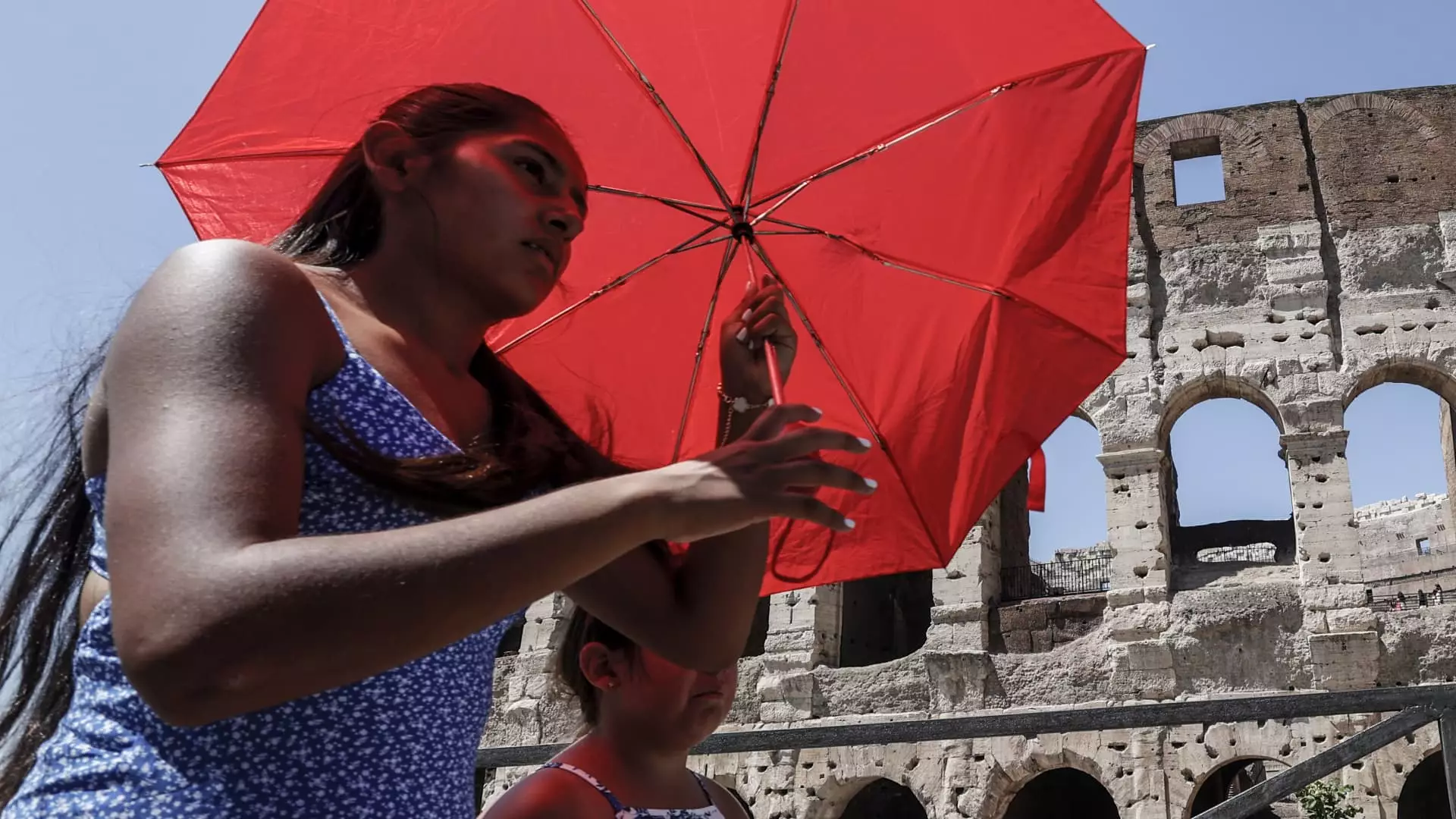As temperatures rise and climate changes manifest more clearly, the habits of travelers are undergoing a noticeable transformation. Traditionally, summer months, particularly July and August, have been the busiest times for tourism in Europe. However, data now suggests that many vacationers are opting to shift their travel plans to the cooler months of September and October. Airline executives, including Delta Air Lines’ president Glen Hauenstein, have highlighted this new trend, attributing it to the extreme heat and overcrowding often experienced in popular summer destinations.
The current climate crisis has resulted in record-high temperatures across Europe during the summer, making the idea of spending a vacation in the sweltering heat less appealing. Hauenstein noted during a recent earnings call that those who have the flexibility to choose when to travel are increasingly opting for what can be termed ‘temperate months.’ This shift reflects a broader pattern among travelers who wish to escape not only the heat but also the throngs of visitors that typically flood European landmarks in peak summer.
In response to these shifting preferences, airlines are adapting their strategies to attract vacationers looking for more favorable travel conditions. United Airlines, for instance, is extending its transatlantic operations into the fall, with senior vice president Patrick Quayle stating that the airline has started offering European routes as early as March and extending them through late fall. This approach aligns with the changing travel climate, allowing carriers to remain competitive by accommodating the evolving demands of tourists who prefer to visit during shoulder seasons.
With corporations maintaining their overall travel schedules relatively stable, it appears that leisure travelers are leading the charge in favoring less crowded, cooler travel periods. By shifting their focus away from the peak summer months, airlines are not only catering to these preferences but also providing more value for tourists who seek both cost-effectiveness and an enhanced travel experience.
The discussion surrounding vacation patterns is also intertwined with broader environmental considerations. The European Union’s climate monitor has reported that this past summer was the hottest on record for the Northern Hemisphere, underscoring the urgent need to address climate change. As weather patterns continue to shift and seasons become less predictable, tourists might be inclined not only to reconsider their seasonal preferences but also to reflect on the sustainability of their travel choices.
In light of these changes, it is possible that travelers will also increasingly factor in the environmental ramifications of their journeys. From choosing eco-friendly accommodations to participating in responsible tourism practices, the future of European travel could very well become a blend of pleasure and ecological consciousness, ultimately reshaping the landscape of international tourism.
As summers become increasingly uncomfortable and crowded, travelers’ preferences are evolving, signaling a notable shift in European tourism. Airlines are adapting to this trend by extending schedules and offering more flexible travel options. This adaptation is not just a response to changing consumer behavior but also signifies an awareness of the effects of climate change on travel habits. As we forge ahead, both travelers and industries will need to navigate this new reality, ensuring that tourism is sustainable, pleasant, and aligned with the changing climate.

